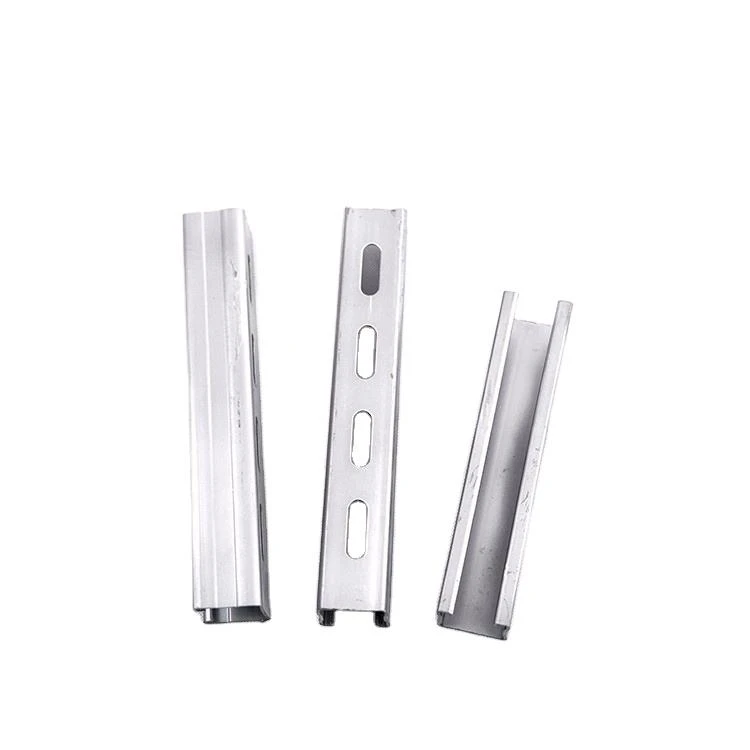

High-Quality M6 Stainless Steel Bolts for Reliable Fastening Solutions in Various Applications
окт. . 22, 2024 13:55 Back to list
High-Quality M6 Stainless Steel Bolts for Reliable Fastening Solutions in Various Applications
Understanding M6 Stainless Steel Bolts A Comprehensive Guide
When it comes to fastening components in various applications, M6 stainless steel bolts are widely recognized for their strength, durability, and resistance to corrosion. In this article, we will explore the features, applications, and benefits of M6 stainless steel bolts while offering practical insights into their usage.
What is an M6 Stainless Steel Bolt?
The designation M6 refers to the metric thread size of the bolt, which has a nominal diameter of 6 millimeters. Stainless steel is an alloy composed primarily of iron, with at least 10.5% chromium content, making it naturally resistant to rust and corrosion. This combination of size and material gives M6 stainless steel bolts their unique properties and makes them ideal for various environments, particularly those prone to moisture and harsh weather conditions.
Types of Stainless Steel Used
There are several grades of stainless steel, but the most commonly used for M6 bolts include
- A2 Stainless Steel (304) This is the most versatile type, known for good corrosion resistance and weldability, making it suitable for a wide range of applications, including food processing and marine environments. - A4 Stainless Steel (316) This grade contains molybdenum, providing enhanced corrosion resistance, especially against chloride environments like seawater. M6 bolts made from A4 stainless steel are ideal for use in maritime applications or chemical processing industries.
Properties of M6 Stainless Steel Bolts
M6 stainless steel bolts possess a variety of important properties
1. Corrosion Resistance Unlike carbon steel, which can rust easily, stainless steel bolts resist rust and deterioration, increasing the longevity of structures and equipment. 2. Mechanical Strength M6 stainless steel bolts exhibit considerable tensile strength, enabling them to withstand significant loads and reduce the risk of breakage or failure.
3. Temperature Resistance These bolts maintain their mechanical properties under high temperatures, making them suitable for applications involving exposure to heat or flames.
4. Low Maintenance Due to their inherent corrosion resistance, M6 stainless steel bolts require less maintenance compared to other materials, reducing upkeep costs and downtime during operations.
Applications of M6 Stainless Steel Bolts
m6 stainless steel bolts

M6 stainless steel bolts are used across numerous industries due to their versatility and robustness
. Common applications include- Automotive Industry Used extensively in vehicle assemblies where durability and resistance to environmental factors are critical. - Construction Employed in buildings and structures that require high-strength fasteners that can withstand weather extremes.
- Marine Applications The high resistance to saltwater corrosion makes them ideal for ships, boats, and coastal construction.
- Food and Beverage Manufacturing M6 bolts made of A2 stainless steel are commonly used in food processing equipment due to their hygienic properties and ease of cleaning.
- Mechanical Engineering They’re integral to manufacturing machinery and equipment where strong and reliable fastening is necessary.
Installing M6 Stainless Steel Bolts
When installing M6 stainless steel bolts, it’s crucial to select compatible nuts and washers to ensure a secure fit and optimal load distribution. The following steps are fundamental for proper installation
1. Prepare the Materials Ensure that the components to be joined are clean and free from debris.
2. Choose the Right Tool Use a torque wrench to achieve the recommended torque specifications for the bolt, preventing over-tightening, which can lead to failure.
3. Check Alignment Before fastening, ensure components are aligned correctly to avoid unnecessary stress on the bolts.
4. Regular Inspections After installation, conduct periodic inspections to check for any signs of wear or corrosion, especially in harsh environments.
Conclusion
M6 stainless steel bolts are essential fasteners in numerous applications, combining strength, corrosion resistance, and versatility. Whether in automotive, marine, construction, or food industries, their unique properties make them an optimal choice for reliable fastening solutions. By understanding the specifications, properties, and best practices for their use, you can ensure the longevity and safety of your projects and constructions.
Latest news
-
Premium Self Tapping Metal Screws: Strong & Easy Install
NewsAug.02,2025
-
Premium Fasteners Manufacturer | AI-Driven Solutions
NewsAug.01,2025
-
Hot Dip Galvanized Bolts - Hebei Longze | High Strength, Corrosion Resistance
NewsAug.01,2025
-
High-Strength Hot Dip Galvanized Bolts - LongZe | Corrosion Resistance, Custom Sizes
NewsAug.01,2025
-
Best Self Tapping Screws for Drywall - Fast & Secure Installation
NewsJul.31,2025
-
High-Strength Hot Dip Galvanized Bolts-Hebei Longze|Corrosion Resistance&Customization
NewsJul.31,2025

